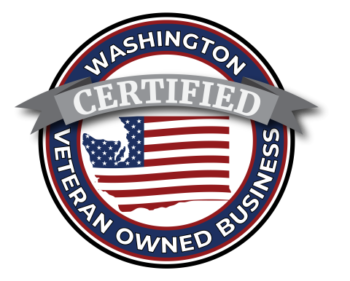With technology rapidly changing, here’s what you need to know to stay secure and competitive in 2025

With technology rapidly evolving, it’s no longer enough for businesses to simply “keep up.” To stay competitive, you need to be proactive. From AI and edge computing to multi-cloud strategies and sustainable practices, here’s what you need to know about the trends that will define 2025—and how you can leverage them to boost efficiency, security, and growth.
Will AI Become Essential for Every Business?
Could you be missing out on the productivity and efficiency gains that AI offers? There’s a good chance the answer to this question is yes. AI continues to transform industries by streamlining workflows and enhancing decision-making. For example, some experts observe that it may increasingly lend itself to “augmented working,” freeing up our personal time as it gives us more working tools.
Other uses may include:
- Generative videos
- Next-generation voice assistants
- Increased business automation
- Autonomous AI agents
- Quantum computing AI
How Will Cloud Strategies Evolve?
There’s a good chance that you have some or all of your data and applications saved in the cloud. So, not surprisingly, cloud computing will continue to play an important role as one of the I.T. trends in 2025, albeit with various hybrid solutions to choose from. Increasingly, businesses will start adopting multi-cloud strategies, using two or more cloud providers to run applications rather than just a single one.
By choosing from different cloud and multi-cloud strategies and options (both private and public), your business can achieve greater flexibility in operating with the best environment for each kind of workload. The setup can help you achieve cost efficiency, avoid vendor lock-in, and gain increased reliability and redundancy.
What Role Will Zero Trust Play in Cybersecurity?
When it comes to cybersecurity, zero-trust architecture will become increasingly common. With this approach, businesses do not assume everything behind their corporate firewall is safe.
With cyber threats on the rise, zero-trust architecture is becoming the gold standard for security. But is your business prepared to adopt a “never trust, always verify” approach? In 2025, more companies will:
- Implement strict access controls using the principle of least privilege (PLoP)
- Secure their systems with continuous authentication and encryption
- Build trust through rigorous verification of all access requests
Evaluate your cybersecurity practices and see if they align with zero-trust principles for maximum protection.
Does Physical Location Still Matter in the Digital Age?
While the virtual realm does take away physical distances, geography can still play a part in your network performance.
Edge computing involves working with data close to its physical source, rather than transmitting it long distances for processing by a remote server. This helps to reduce latency, increase security, and enhance the end-user experience.
Internet of Things (IoT) are physical devices embedded with sensors that connect and exchange data with other devices and systems over the Internet.
So, together, you have edge computing and the Internet of Things (IoT) or “IoT edge.” In this setup, IoT devices can be more independent and efficient, storing, analyzing, and processing data locally rather than sending it to a remote server. Since the data is processed close to its point of origin, it is done with greater speed, allowing users to glean real-time insights. Network traffic and latency also decrease with the IoT edge.
Will 5G Finally Become a Business Game-Changer?
While you’ve heard about 5G technology (the fifth generation of cellular networking) for a while, 2025 could be the year it takes off. The technology offers faster speeds, lower latency, and enhanced connections, lending itself to various industry sectors seeking improved efficiency, productivity, and reach.
For example, 5G can be used in healthcare to provide better telehealth services, augmented home care, remote monitoring, and increased use of IoT medical devices. The fast access to vast volumes of relevant data may also improve patient outcomes.
A sampling of other industry sectors that will benefit from 5G technology for business applications includes:
- Government and education
- Travel
- Fintech
- Retail
- Entertainment and media
- Manufacturing
- Remote work
Will Remote Work Continue to be An Important Option?
The shift to remote work that started during the COVID-19 pandemic should continue into 2025 but with a greater emphasis on hybrid arrangements. An article in Forbes points out: “ Recent analyses by leading experts suggest a hybrid model—some time at home, some in the office—is emerging and will be the future for many workers.”
While in the shadow of COVID, some experts predicted the death of the traditional office space, and such views have been tempered as a growing number of organizations have recalled part or all of their workforces back on-site. This gives rise to both remote and hybrid work solutions.
A hybrid arrangement can provide workers with flexibility and a greater work-life balance while improving engagement and collaboration with increased face time. Staff also have easy access to work supplies and workspaces when spending part of their time in-house.
How Can I.T. Go Green?

Tech Target defines “Green I.T.” as seeking to minimize “ the negative effects of I.T. operations on the environment by designing, manufacturing, operating and disposing of servers, PCs and other computer-related products in an environmentally friendly manner.”
The drive to sustainability in business will continue to mount because of increased consumer demand, strengthened government regulations, and businesses’ growing desire to do what is right for the environment.But how can I.T. actually go green?
- Minimize Hazardous Materials: Work with vendors that prioritize eco-friendly manufacturing processes, such as eliminating toxic substances like mercury or lead in hardware.
- Maximize Energy Efficiency: Adopt energy-efficient servers, desktops, and network equipment.
- Improve Product Lifecycle Management: Recycle outdated hardware responsibly or refurbish equipment to extend its lifecycle.
- Virtualize Workspaces: Transition to virtual machines and remote work setups
- Optimize Data Centers: Consolidate servers and use efficient cooling technologies
Adopting these measures doesn’t just protect the planet; it provides tangible business advantages:
- Decreased Emissions: Lower energy use reduces your carbon footprint.
- Less Waste: Keeps e-waste out of landfills.
- Improved Brand Reputation: Consumers favor sustainability-focused companies
- Cost Savings: Energy efficiency and hardware optimization lowers costs
Who Can Help Ensure Data Privacy and Compliance?
The safety of data will continue to be a major concern. Some statistics show that cybercrime costs may reach a staggering $10.5 trillion by the end of 2025. Data breaches can expose vulnerabilities in your company’s security systems and policies that must be plugged to keep your sensitive information safe.
An expert-managed service provider (MSP) can help you to stay secure with strategies that include regular backups and system updates, ongoing network monitoring, cybersecurity training and awareness for staff and partners, and preparedness that evolves as the threats do themselves.
Attentus: Your Partner for Strategic I.T. Planning
While staying informed about upcoming I.T. trends is important, your I.T. partner shouldn’t just be trendy. With over 20 years of experience, Attentus has earned a reputation as a trusted and reliable I.T. partner for businesses across the Pacific Northwest and beyond.
One of our core values is building trusted relationships with our clients. Through our vCIO services, we ensure you’re always equipped to seize opportunities and tackle challenges, supporting your success at every step of the journey—all at a reasonable and predictable monthly cost.”
Want to learn more? Contact us for a free consultation and advice on how to strengthen your I.T. infrastructure. Start 2025 on the right foot.

